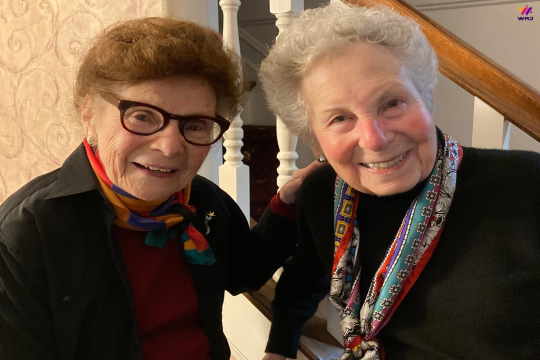
This week's Torah portion, Parashat D'varim, is the first parashah in the book of Deuteronomy. It begins with a series of speeches given by Moses to the Israelites. In Hebrew, the word d'varim is defined as 'words,' yet it means not just 'words' but also 'things' or 'matters.' D'varim can be weighty or significant. D'varim have power; words matter.
Moses' speeches recounted the 40 years of wandering and served as a history lesson for the people in the desert. They continue to do so for readers of Torah today, providing insight into our people's early history and traditions. These same speeches can be seen as Moses' Ethical Will. He dies only weeks after delivering weighty and significant messages and laws. His last words are also a record of the ethical values and laws that guided society in biblical times.
Leadership, faith, and the art of making judgments are the major themes of this parashah. Moses reviewed the lessons learned from the journey through the desert, such as the giving of the Torah at Mt. Sinai and various times when God got angry at the Jews for their shortcomings. He highlighted many laws concerning how the Jews should conduct themselves in the Land of Israel, such as setting up courts to administer justice and instructions for dealing with others in business and social settings. Moses spent a lot of time discussing the sin of the spies he sent to scout the land and who came back with a negative report, discouraging the Jews from entering the land. Because of their lies and the people's lack of faith, their whole generation was not permitted to enter the Land of Israel. Moses pointed out that they were punished for not appreciating all the good God had done for them as well as for their lack of faith that God would help them.
In a pivotal moment, Moses admitted that he was incapable of leading the people on his own, and he appointed wise, discerning, and experienced judges and tribal leaders to assist him. Expanding the mantle of leadership to others illustrates Moses' wisdom and humility, along with his faith and confidence in those he appointed. The parashah concludes with Moses encouraging his trusted disciple and successor, Joshua, who leads the Jewish People into the land.
There is a message here for contemporary leaders to share the honor and responsibility of leadership. Seek out proactive measures to facilitate smooth leadership transitions. Engage others, especially younger leaders, and choose your words carefully to ensure that the work we value will continue to impact society long after one individual can.
Moses provided three significant rules for making judgments: "Hear out our fellow men and decide justly between any man and a fellow Israelite or a stranger. You shall not be partial in judgment: hear out low and high alike. Fear no man, for judgment, is God's" * While it is difficult to relate to the specific examples of battles and distribution of plunder in this parashah, these instructions provide insight into the ethics of the time, and we see the through-line to the justice systems of democratic nations today. Judicial independence is a cornerstone of democracy. Screening out bias, prejudice, and commitment to impartiality is essential to rendering fair decisions.
Let all of us, current and aspiring leaders alike, apply compassion and justice as we engage in constructive dialogue and always remember that D'varim have power; words matter.
*Translation JPS Tanakh
Related Posts

Andrea Stillman: A WRJ Leadership Spotlight


